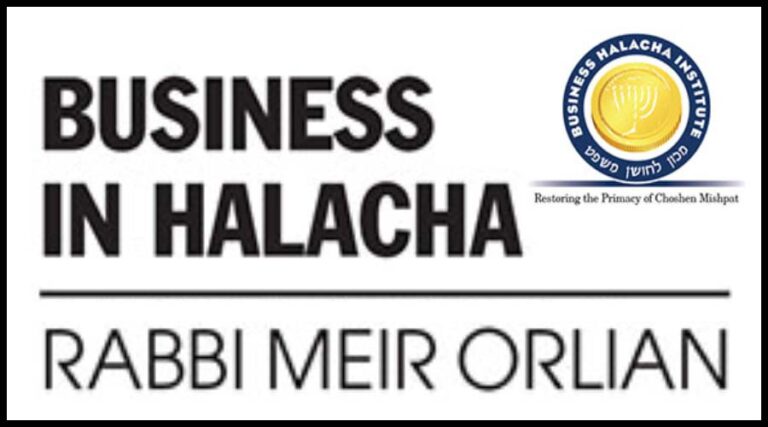Mr. Hadari was browsing the stands at the large, outdoor arba’ah minim center.
At one stand, he found an esrog that he liked, but there was a miniscule dot about a third of the way from the top.
“What do you think of that esrog?” the seller asked Mr. Hadari. “It’s beautiful! Clean, a nice shape, rich color… $100.”
“Indeed,” replied Mr. Hadari. “I’m seriously considering buying it. I’m just concerned about this dot…”
“Let me have a look,” said the seller.
The seller examined the esrog. “That dot is not an issue at all,” he said. “It’s so tiny, barely noticeable. It’s not even clear that it’s on the critical part of the esrog. There’s no question that it’s considered a mehudar esrog.”
“I’m glad that you say so,” said Mr. Hadari, “but I’d like to ask my rav. He’s over there, at the other end of the center.”
“You’re welcome to ask him,” said the seller. “I’m sure that he’ll say it’s fine.”
Mr. Hadari took the esrog and headed over to his rav. On the way, a stray dog raced through, knocking Mr. Hadari off balance. The esrog fell to the floor, breaking the pitam and causing a gouge.
Mr. Hadari returned to the seller apologetically. “That dog caught me completely by surprise from behind,” he said. “I’m sorry that the esrog got ruined. It’s not my fault, though – it was complete oness, circumstances beyond my control.”
“That makes no difference,” said the seller. “You took the esrog to check with your rav, so if you are not able to return it – for whatever reason – you need to pay the $100 that it was worth!”
“I’m willing to be reasonable and pay partially,” replied Mr. Hadari, “but I don’t see why I should be liable. I didn’t buy the esrog yet, and even if I’m like a shomer (guardian) of it, I’m not liable for oness.”
The two came before Rabbi Dayan and asked, “Is Mr. Hadari liable for the esrog?”
“The Gemara (Nedarim 31a; B.B. 88a) teaches that if someone takes an item with intent to buy it if it proves acceptable, he is liable for all damage to it, even oness,” replied Rabbi Dayan, “provided that the price is set.” (C.M. 200:11).
“Most Rishonim explain that the person is considered a buyer in the meantime, while others consider him a borrower, since he can always return the item (Tosafos B.B. 87b; Ran Nedarim 31a).
Rambam writes that the person must take the item with intent to acquire it, whereas other Rishonim do not require explicit intent, and suffice with presumption of this intent (Sma 200:29).
Moreover, once the buyer takes the item with intent to check it, the seller cannot retract, whereas the buyer can, since he took it on this condition (ibid.).
Some suggest that a person who takes several esrogim to check with his rav with intent to buy only one should not be considered a buyer for them all. However, he could still be considered a borrower for them all, since he has the benefit of choosing any one of them (Pis’chei Choshen, Pikadon 1:[73]).
If the person decides not to buy the item, some consider him henceforth a shomer sachar, liable also for theft, like a borrower after the time, while others consider him a shomer chinam, liable only for negligence, since it turned out that he had no benefit (Sma 200:31).
“Thus, since the oness occurred on the way to the rav and the price was set, Mr. Hadari is liable for the esrog,” concluded Rabbi Dayan. “Had he decided not to buy it, and the accident had occurred on the way back to the seller, he would not be liable for oness.”
Verdict: A person who takes an item to check is liable even for oness, either as a buyer on condition or as a borrower. If he decided not to buy it and an accident occurred on the way back, he is not liable for oness, but only as a shomer sachar or shomer chinam.
To receive BHI’s free newsletter, Business Weekly, send an e-mail to [email protected].
This article is intended for learning purposes and cannot be used for final halachic decision. There are also issues of dina d’malchusa to consider in actual cases.


